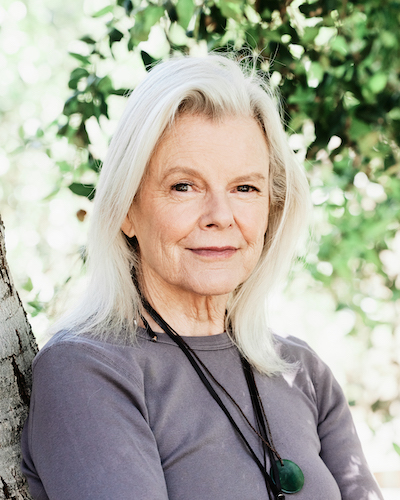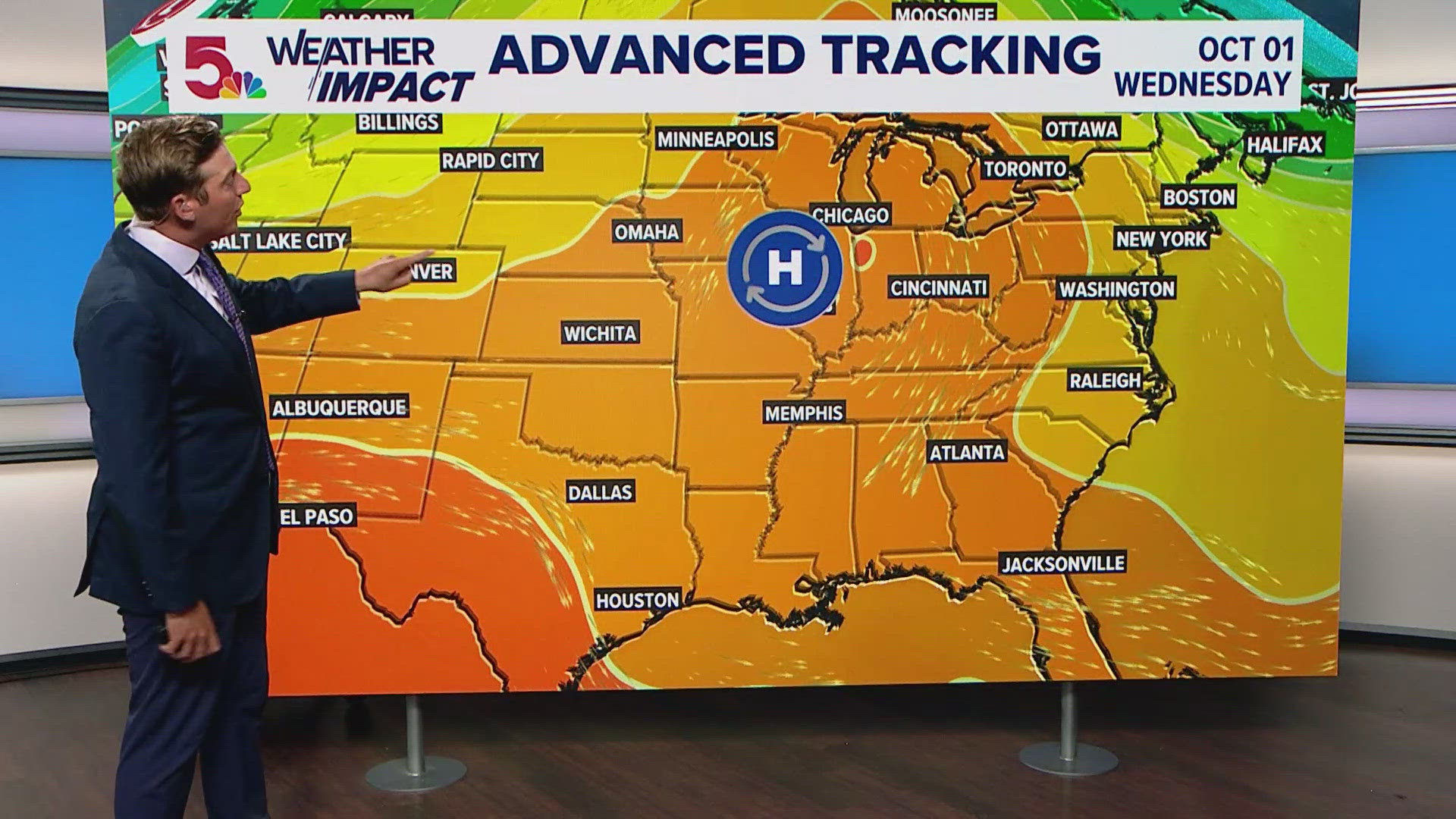Report on Washington State’s Updated Plant Quarantine and its Contribution to Sustainable Development Goals
Executive Summary
The Washington State Department of Agriculture (WSDA) has enacted a significant environmental protection measure by updating its Noxious Weed Seed and Plant Quarantine list. Effective August 9, the sale of 19 additional plant species is prohibited within the state. This regulatory action is a direct contribution to achieving several United Nations Sustainable Development Goals (SDGs) by safeguarding local ecosystems, protecting agricultural productivity, and fostering responsible environmental stewardship.
Upholding SDG 15: Life on Land
The primary objective of the quarantine directly aligns with SDG 15, which aims to protect, restore, and promote the sustainable use of terrestrial ecosystems and halt biodiversity loss. The introduction of these 19 species is a critical preventative measure against the spread of invasive alien plants.
- Halting Biodiversity Loss: Species such as Common (English) ivy (Hedera helix) and Herb Robert (Geranium robertianum) are known to outcompete native flora, disrupt habitat, and reduce biodiversity. Prohibiting their sale is a key strategy to protect the integrity of Washington’s natural landscapes.
- Protecting Ecosystems: The WSDA’s action serves to prevent new introductions of problematic plants, thereby protecting the state’s forests, wetlands, and other terrestrial ecosystems from the degradation caused by invasive species.
Supporting SDG 2: Zero Hunger and Sustainable Agriculture
This quarantine measure provides crucial support for SDG 2 by promoting sustainable agriculture and protecting food production systems. Several of the newly listed plants pose a direct threat to agricultural lands.
- Protecting Crop Yields: Weeds like Palmer’s amaranth (Amaranthus palmeri) and Russian knapweed (Rhaponticum repens) are highly aggressive and can significantly reduce crop yields, impacting food security and the economic viability of farms.
- Ensuring Food Security: By preventing the commercial distribution of these noxious weeds, the state is taking proactive steps to protect its agricultural resources, a cornerstone of regional food security.
Fostering Responsible Production and Partnerships (SDG 12 & SDG 17)
The implementation of the quarantine reflects a commitment to SDG 12 (Responsible Consumption and Production) and SDG 17 (Partnerships for the Goals).
- Responsible Production: The regulation curtails the commercial trade of environmentally harmful products, encouraging the nursery industry to adopt more sustainable and ecologically responsible practices.
- Multi-Stakeholder Partnerships: The WSDA is actively engaging multiple stakeholders to ensure compliance. This includes:
- Educating plant sellers on the new regulations.
- Encouraging public participation by asking residents to report non-compliant sales.
- Establishing a clear enforcement protocol that prioritizes education before penalties.
Newly Quarantined Plant Species
The following 19 species have been added to the Washington State Noxious Weed Seed and Plant Quarantine list:
- Common (English) ivy (Hedera helix)
- Atlantic Ivy (Hedera hibernica)
- Spotted touch me not (Impatiens capensis)
- Cape pondweed (Aponogeton distachyos)
- Hanging sedge (Carex pendula, Carex pendula subsp. pedula, and Carex pendula subsp. agastachys)
- Green alkanet (Pentaglottis sempervirens)
- Common Fennel (Foeniculum vulgare (except bulbing fennel, F. vulgare var. azoricum))
- European coltsfoot (Tussilago farfara)
- Herb Robert (Geranium robertianum)
- Houndstongue (Cynoglossum officinale)
- Sulfur cinquefoil (Potentilla recta)
- Wild basil/basil savory (Clinopodium vulgare)
- Yellow nutsedge (Cyperus esculentus)
- Camelthorn (Alhagi maurorum)
- Russian knapweed (Rhaponticum repens)
- Puncturevine (Tribulus terrestris)
- Rough chervil (Chaerophyllum temulum)
- Turkish thistle (Carduus cinereus)
- Palmer’s amaranth (Amaranthus palmeri)
SDGs Addressed in the Article
SDG 15: Life on Land
- The article’s central theme is the protection of the terrestrial environment from invasive plant species. The Washington State Department of Agriculture (WSDA) is taking action “to help protect local agriculture and the environment.” This directly aligns with SDG 15, which aims to protect, restore, and promote sustainable use of terrestrial ecosystems, sustainably manage forests, combat desertification, and halt and reverse land degradation and halt biodiversity loss. The introduction of a quarantine list for “problematic plants” is a direct measure to combat threats to local ecosystems and biodiversity.
SDG 2: Zero Hunger
- The initiative is explicitly designed to “protect local agriculture.” Invasive species can severely impact crop yields, pasture quality, and overall agricultural productivity. By preventing the spread of noxious weeds like Palmer’s amaranth and Russian knapweed, the WSDA’s action supports sustainable agriculture and helps ensure the resilience and productivity of food production systems, which is a core component of SDG 2.
SDG 12: Responsible Consumption and Production
- The regulation targets the commercial sale of invasive plants, directly influencing production and consumption patterns within the nursery and landscaping industries. By prohibiting the sale of these 19 species, the state is promoting more sustainable practices and ensuring that products sold do not harm the environment. The educational component for plant sellers also contributes to raising awareness for sustainable lifestyles, aligning with the principles of SDG 12.
Specific Targets Identified
Targets under SDG 15: Life on Land
- Target 15.8: “By 2020, introduce measures to prevent the introduction and significantly reduce the impact of invasive alien species on land and water ecosystems and control or eradicate the priority species.”
- The article is a clear example of this target in action. The WSDA is introducing a measure (updating the Noxious Weed Seed and Plant Quarantine list) to prevent the introduction and spread of 19 specific invasive alien species. The article states, “Preventing their sale in the state is one important step to limiting initial or new introductions of these problematic plants.”
- Target 15.5: “Take urgent and significant action to reduce the degradation of natural habitats, halt the loss of biodiversity and, by 2020, protect and prevent the extinction of threatened species.”
- By controlling the spread of invasive species like English Ivy (Hedera helix), which can outcompete native flora, the state is taking action to reduce the degradation of its natural habitats and halt the loss of local biodiversity.
Target under SDG 2: Zero Hunger
- Target 2.4: “By 2030, ensure sustainable food production systems and implement resilient agricultural practices that increase productivity and production, that help maintain ecosystems…”
- The article’s stated goal to “protect local agriculture” directly supports this target. Controlling invasive weeds is a fundamental practice for maintaining ecosystem health on and around farmland, thereby ensuring sustainable and resilient food production.
Target under SDG 12: Responsible Consumption and Production
- Target 12.8: “By 2030, ensure that people everywhere have the relevant information and awareness for sustainable development and lifestyles.”
- The article mentions that “The WSDA will work to educate plant sellers about the quarantine, ensuring compliance.” This educational effort, along with the public press release, serves to provide relevant information and raise awareness among businesses and consumers about sustainable choices in gardening and landscaping.
Indicators for Measuring Progress
Indicators for SDG 15 Targets
- Implied Indicator for Target 15.8: The article provides data for a local-level indicator: “The number of invasive alien species regulated by national (or state) legislation.” The article explicitly states that “19 new plant species” have been added to the quarantine list.
- Implied Indicator for Target 15.8: The establishment of a reporting and enforcement mechanism. The article implies this can be measured by tracking “the number of reports of prohibited plant sales” received via the nursery@agr.wa.gov email and “the number of fines issued for non-compliance.”
Indicator for SDG 2 Target
- Implied Indicator for Target 2.4: The implementation of policies to protect agricultural systems. The article itself is evidence of this indicator: “Adoption of a state-level quarantine list to protect agriculture from invasive weeds.”
Indicator for SDG 12 Target
- Implied Indicator for Target 12.8: The execution of awareness campaigns. This can be measured by “the number of educational outreach initiatives for businesses and the public.” The article confirms this by stating the “WSDA will work to educate plant sellers.”
SDGs, Targets, and Indicators Analysis
| SDGs | Targets | Indicators Identified or Implied in the Article |
|---|---|---|
| SDG 15: Life on Land | Target 15.8: Introduce measures to prevent the introduction and significantly reduce the impact of invasive alien species on land and water ecosystems and control or eradicate the priority species. |
|
| SDG 2: Zero Hunger | Target 2.4: Ensure sustainable food production systems and implement resilient agricultural practices that increase productivity and production, that help maintain ecosystems. |
|
| SDG 12: Responsible Consumption and Production | Target 12.8: Ensure that people everywhere have the relevant information and awareness for sustainable development and lifestyles. |
|
Source: khq.com







